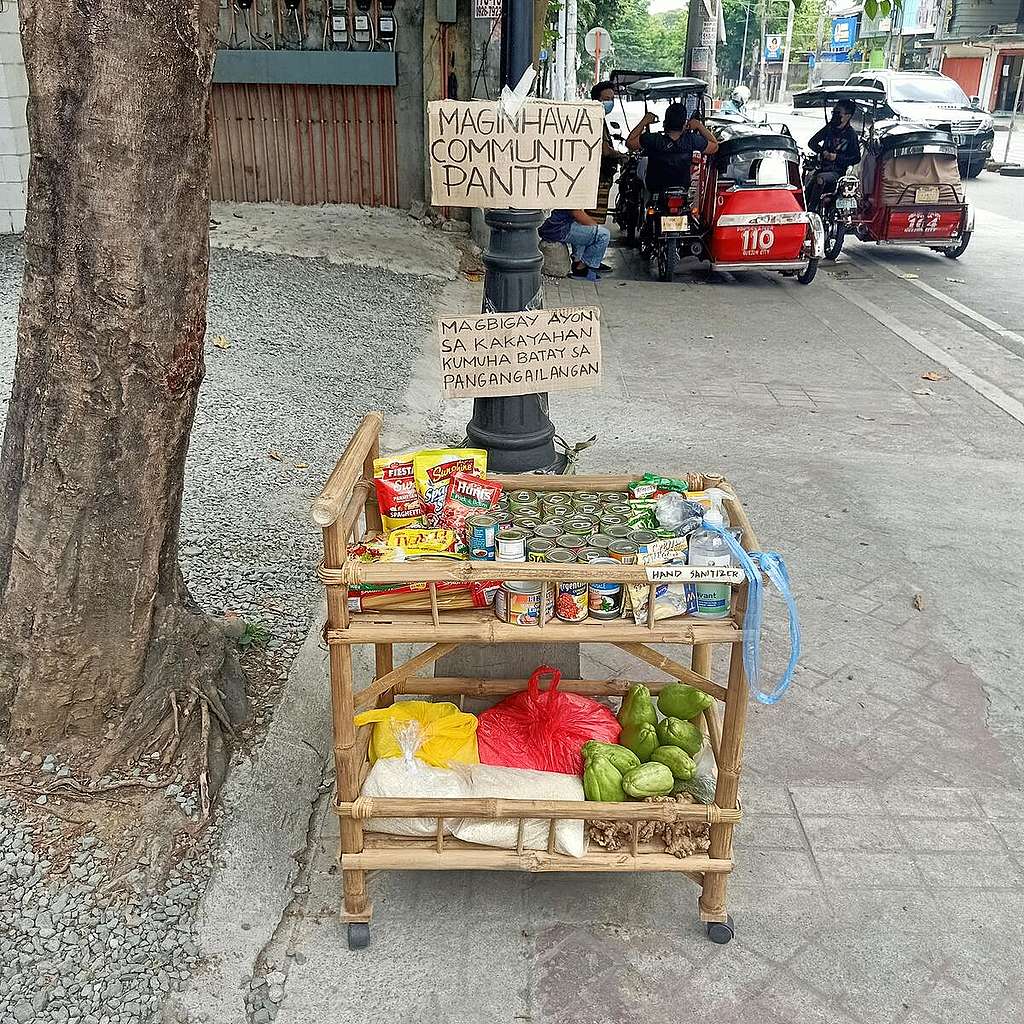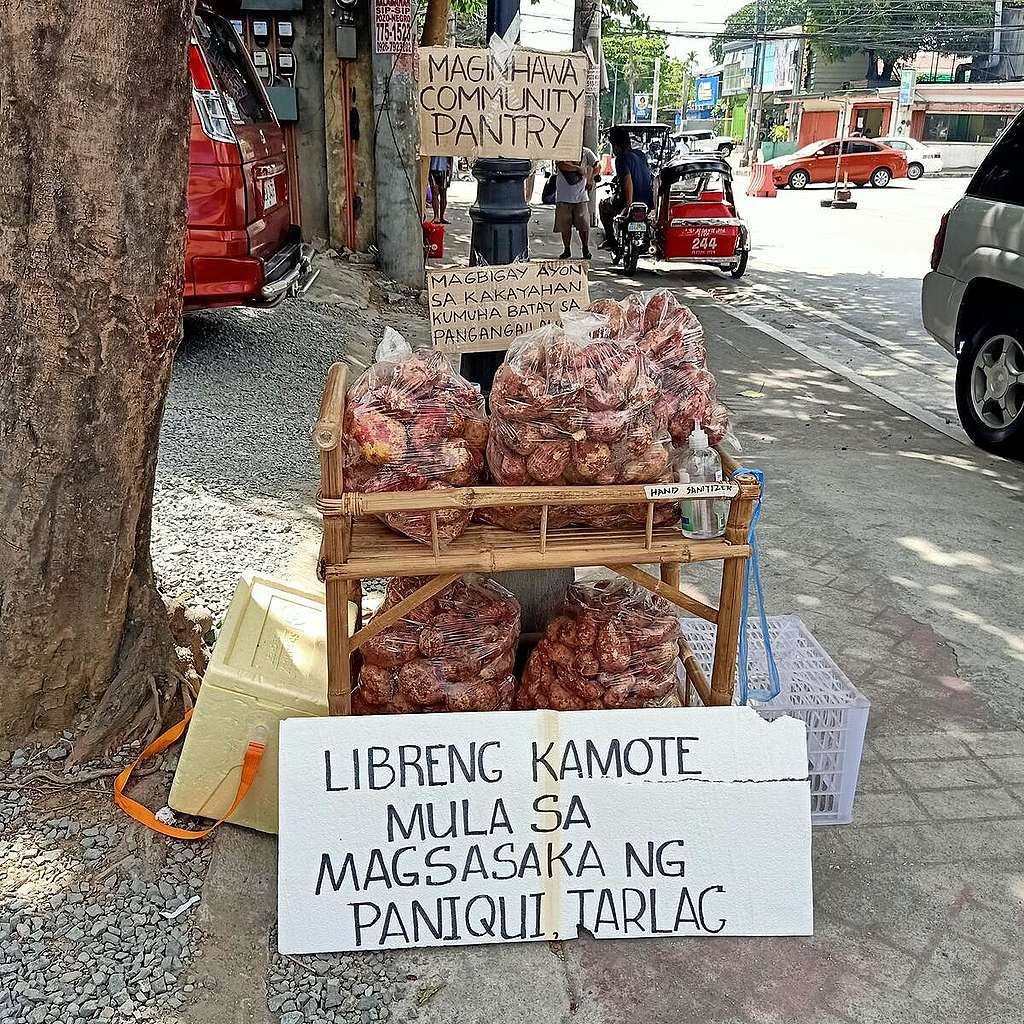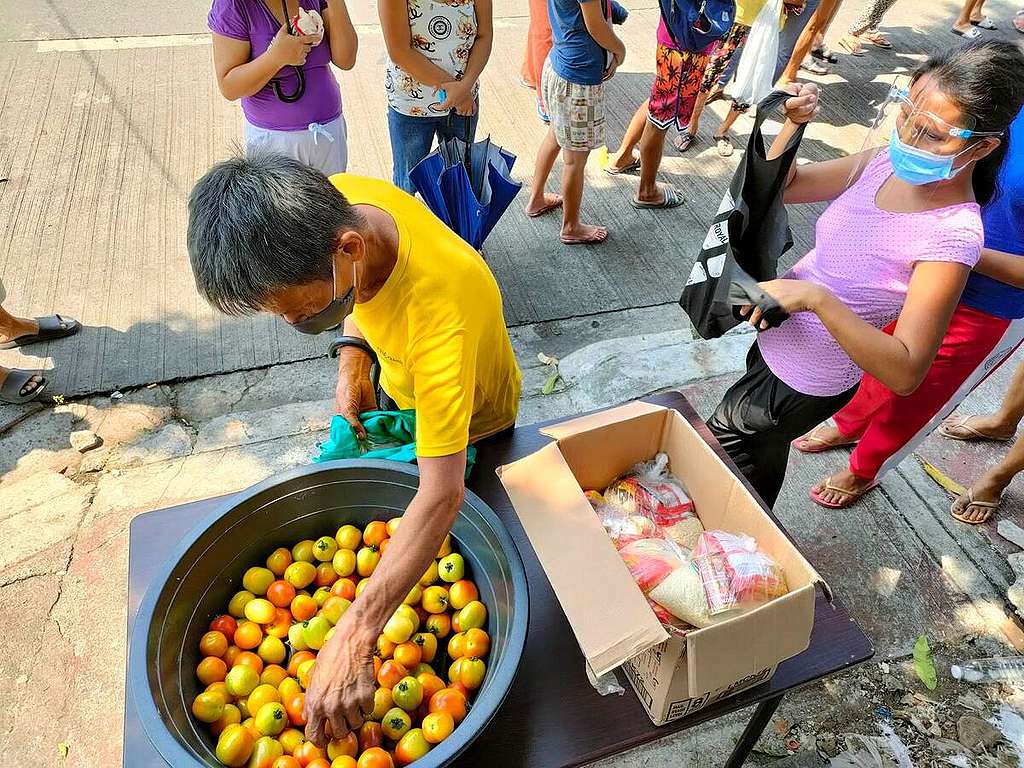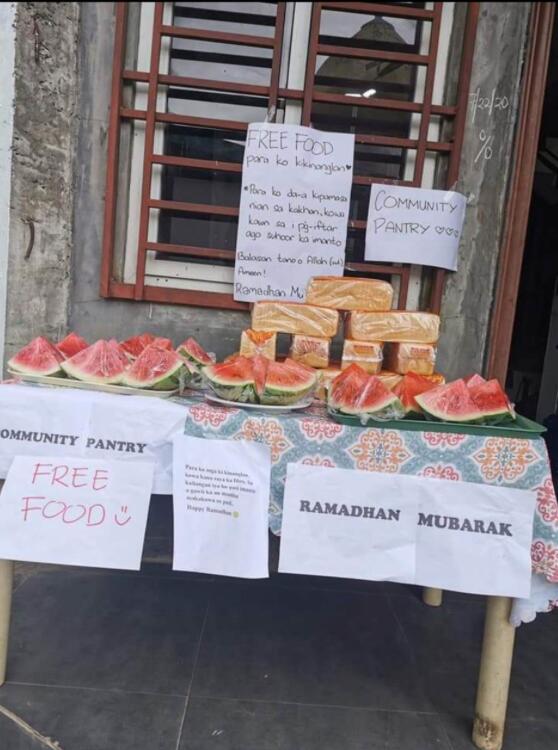All over the world people are coming together to build a better future for their communities and themselves, despite challenging situations. These experiences don't always hit the headlines, but offer some ideas about how humankind can live in a modern world and counter the neoliberal, capitalist system. These solutions - many of them coming from the global majority - can help us to re-imagine an alternative future where people's rights to healthy food come before profit, so that everyone can live a healthy and dignified life.

In the Philippines, ordinary people sparked a movement to give people access to fresh food in response to the hunger crisis that arose from lockdowns during the COVID pandemic. This movement eventually connected small farmers with city dwellers by creating markets and support for food sovereignty, a cornerstone for sustainable agriculture.
Maginhawa Street, a popular food strip located in Quezon City, Manila, was one of many commercial districts badly hit during the early years of the coronavirus pandemic. Local citizen, Patricia Non, who grew up in a household where financial constraints meant that food wasn't always available, could empathise with people's struggles during the pandemic and was impelled to do something. In April 2021, after a series of lockdowns causing joblessness and isolation, Non set up a simple bamboo cart with some food in it, and a sign in the local language saying "Give what you can. Take what you need."
After a few days, Maginhawa, a Filipino word which contextually means a feeling of relief, would come back to life and pioneer the community pantry, a model that became viral and spread across the Philippines. At the height of the movement more than 6,700 community pantries brought people together and fed thousands of vulnerable Filipinos nationwide.
How need and inequality led to collective action
With an estimated 4.14 million Filipinos suffering unemployment and a poverty incidence of around 26.14 million, the crisis severely afflicted jeepney drivers like Roberto Agnes, who had no work during the COVID lockdowns. But urgent relief came through the Maginhawa community pantry, which gave the drivers' union a surprise gift of a jeepney full of vegetables. This fresh food supply was immediately distributed to 55 drivers, inspiring Agnes to organise the union's own pantry for the community as a show of solidarity.

According to long-time Maginhawa village captain Lolita Singson, who was tasked with managing the crowds as the initiative grew, about 1,000 people showed up daily. Despite curfew restrictions, people would try to line up overnight, though the biggest rush would be at five o'clock in the morning.
While the rapid growth of the community pantries brought joy, it also revealed the deep hunger of FIlipinos and the lack of aid. As Non explained, "the primary goal of the pantry is to empower the people and to put food inside their stomachs so they can work, study, and function well mentally. The goal is to eat so we can thrive in the things that we want to do and so our country will be better."
Urban citizens join farmers' calls for food sovereignty
Rosalina Tagle, a farmer from the province of Sariaya, Quezon, couldn't sell her crops during the pandemic, and was inspired by the initiative to help fellow marginalised Filipinos and prevent food wastage at the same time. She took the four hour trip to the city to share almost two tons of fruit and vegetables with the Matiyaga community pantry, neighbouring the Maginhawa hub.
According to Tagle, community pantries "will also help us farmers retain ownership of our lands. Farm-to-market roads are often used as an excuse for land development, but these projects lead to the construction of factories and the building of subdivisions".
Participating in the initiative was a way to call on the government to address these agricultural issues that have been left hanging for three decades now.

The organiser of the Matiyaga community pantry, Elijah San Fernando then spearheaded the co-creation of the Community Pantry PH BuyAnihan system - a word play on the local concept of bayanihan (mutual aid) and ani (harvest) - to link direct and rescue buys to save crops and distribute them to communities, in partnership with the Maginhawa hub.
San Fernando emphasises that in the community pantries "we don't get produce from transnational or multinational companies. The produce is not imported, but comes from Filipino farmers themselves. While food security is an important concept, it doesn't address the issue of where food is sourced. Food sovereignty highlights the citizens' control on their food."
Beyond the immediate crisis – to changing the landscape of food for the people
The inspiration of the community pantry also transcends time and cultures. Farnaida Tanggol-Tabao, a local pantry organiser from Marawi in the Mindanao region – a city which has been displaced since the 2017 outbreak of a conflict between the Philippine government and Islamic State militants – aims to make bread-giving a tradition every Ramadan, with a third pantry run planned for 2023. Apart from feeding fellow Muslims at the end of the daily 14-hour fast, having food to share nurtures the relationships of families who gather to eat at dawn.
But the growing movement has also faced challenges, with Non and some of the organisers facing malicious labelling of individuals or organisations as part of communist or terrorist groups, known as red tagging, and were forced by government officials to momentarily halt operations.
Nevertheless, the community pantry has recently stepped up its food service to help when typhoons or fires hit, and is being transformed into a non-government organisation that aims to connect communities, farmers, sectors, and local governments to deepen food availability and create healthier food cycles for the people. This shift not only reduces food waste, but also ensures that local farmers can be better supported and fairly compensated for their hard labour as well.

"If people's basic needs are not provided by those in power, food availability becomes revolutionary because caring for ourselves and our neighbours is a form of resistance - showing that we're not giving up," exclaimed Non.
Governments everywhere that fail to fulfil this basic need for their citizens need to learn from the people how to achieve this sustainably, and support them in these efforts.The community pantry – and initiatives like this everywhere that stand up for people's right to healthy food - show that when people put themselves and the planet before profit and growth they benefit themselves and others in the networks they create. The community pantry has revitalised the call for food sovereignty by supporting small farmers through economic exchange and has built resilience and community through re-localising the supply of fresh food.
Abigail Aguilar is a campaign strategist at Greenpeace International for the Alternative Futures project.
Raizza Bello is a freelance journalist from the Philippines who covers in-depth investigations on environment, peace and conflict, and human rights issues.
Read the other stories in this series:
The true meaning of economy - the art of taking care of our common home
Fighting for inclusion and justice in Brazil's Amazonas capital
Living, loving and learning from the "people of the mountain"






